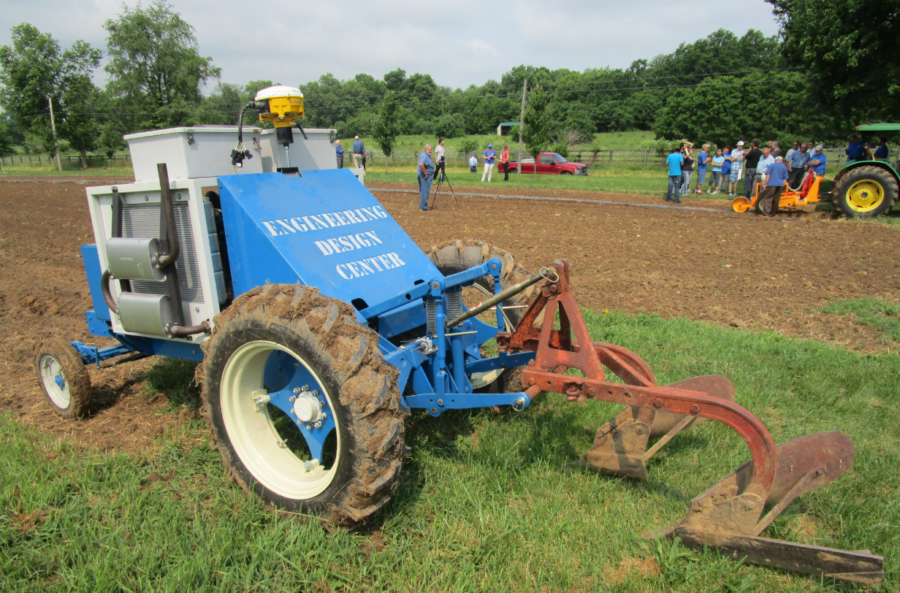Caution: Robot tractor ahead
September 14, 2015
By Hudson Hawkins
When Skynet goes online the crops will still be harvested — at least at UK, thanks to the College of Agriculture’s robot tractor.
This tractor is a big step for both the worlds of agriculture and engineering.
“Using this machine, we are exploring what types of systems would work best in different farming situations,” said Joe Dvorak, assistant professor in the department of Biosystems and Agricultural Engineering.
A robotic tractor could multiply the amount of labor a single farmer can do and make farming much more efficient, Dvorak said.
The tractor is designed to autonomously navigate with the use of a waypoint-based guidance system, and can also be controlled manually using a joy stick.
This may sound familiar because it is based on the same technology used by drones.
Currently the tractor is being used on the UK horticultural research farm to weed the fields for their organic production unit.
It is not, as of yet, a replacement for traditional tractors. At this point the tractor is more of an experimental prototype that could be implemented in the future.
“It is a dream of some in the biosystems and agricultural engineering field to implement fleets of smaller autonomous vehicles to replace the (conventional) tractor,” Dvorak said.
The tractor was built at UK by members of the Engineering Design Center in the BAE department, using proven systems from a forklift that was donated to them by Clark Material Handling.
The UAV-style guidance system was open source, but the electronics that connect it to the motors on the tractor were developed by a BAE graduate student.
The tractor is a hybrid that uses electric ground drive motors. These motors are important parts of the machine.
“The electric ground drive is interesting and based on preliminary experiments,” Dvorak said. “(It) might be useful for smaller autonomous machines in certain agricultural settings like local diversified vegetable production.”
While it may not be ready to replace the standard tractor and other farm implements, it has an important place at the university and hopefully on a larger scale after more work has been done with it.
“The University of Kentucky has a long (history) in this type of research,” Dvorak said. “I am merely continuing a legacy that is at least 10 to 20 years old. It is exciting to see where this will eventually lead.”
Dvorak said he hopes equipment companies will be able to take their research findings and develop machines that are optimized for commercial use.
Despite the Skynet similarities, the robot tractor has yet to try and overtake South Farm.
“We try to keep crazy from happening with a machine like that,” Dvorak said. “Of course, my graduate students might just not be telling me about something.”
































































































































































